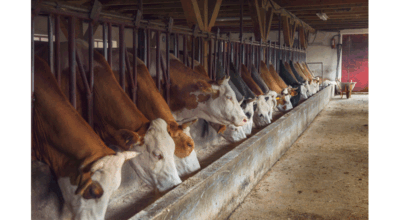What are you doing to protect the family farm?
Published 9:13 am Wednesday, January 16, 2013
by Matthew J. Lohr
Virginia Department of Agriculture
It is a common issue in Virginia to protect your farm from development.
Sometimes this occurs because a farmer gets an offer he can’t refuse. Certainly no one would deny any farmer the right to make a nice profit, especially before retirement.
All too often, however, the life-changing event comes from a transition issue, not a monetary offer. What does a farmer do when the kids are grown and settled nicely into non-farm life?
Here in Virginia, it is still correct to say, as we have done for 400 years, that agriculture is the heart of our economy. It remains our largest industry — by far — and few would argue that well-managed farm and forestlands produce significant environmental benefits, require little or no public services and make significant contributions to local economies, tourism, recreation opportunities and our quality of life.
Agriculture is still our leading industry, but we continue to lose valuable farmland.
The competition for land remains strong in Virginia, and land continues to be converted from agricultural uses to other uses. The most recent information from the National Resources Inventory indicates that between 2002 and 2007, Virginia lost 60,800 acres of agricultural land to development. The sad truth is that once land is paved over, it never returns to agricultural production.
Separate data from the Census of Agriculture indicate that more than 520,000 acres were no longer considered as working farms during that same 2002-2007 period. Because rural landowners have much of their equity tied up in their land, they generally have to choose between selling their land, or holding on to it for agricultural uses.
The good news is that there is a third alternative — the use of conservation easements.
A conservation easement is a voluntary perpetual agreement that helps landowners keep their working land in agricultural and forestall use by restricting non-agricultural uses such as mining and large-scale residential and commercial development. The landowner continues to own, live on and use the land. Land under easement may be sold or passed on to heirs but is bound by the easement restrictions. As an added bonus, there are generous state tax credits and federal tax deductions available for landowners who make these voluntary easement donations.
Considering whether a conservation easement is right for your family and your farm is a big decision. It is something my family and I are considering for our farm in Rockingham County. At the moment, we are still checking out the tax implications — for example, the tax incentives, but I wouldn’t be surprised if we have put an easement on the farm by this time next year.
I strongly encourage Virginia farm owners interested in permanently protecting their land, while taking advantage of generous state and federal tax incentives, to contact our Office of Farmland Preservation. Call 804-786-1346.
MATTHEW J. LOHR is the commissioner for the Virginia Department of Agriculture and Consumer Services and can be reached at Matthew.Lohr@vdacs.virginia.gov.





